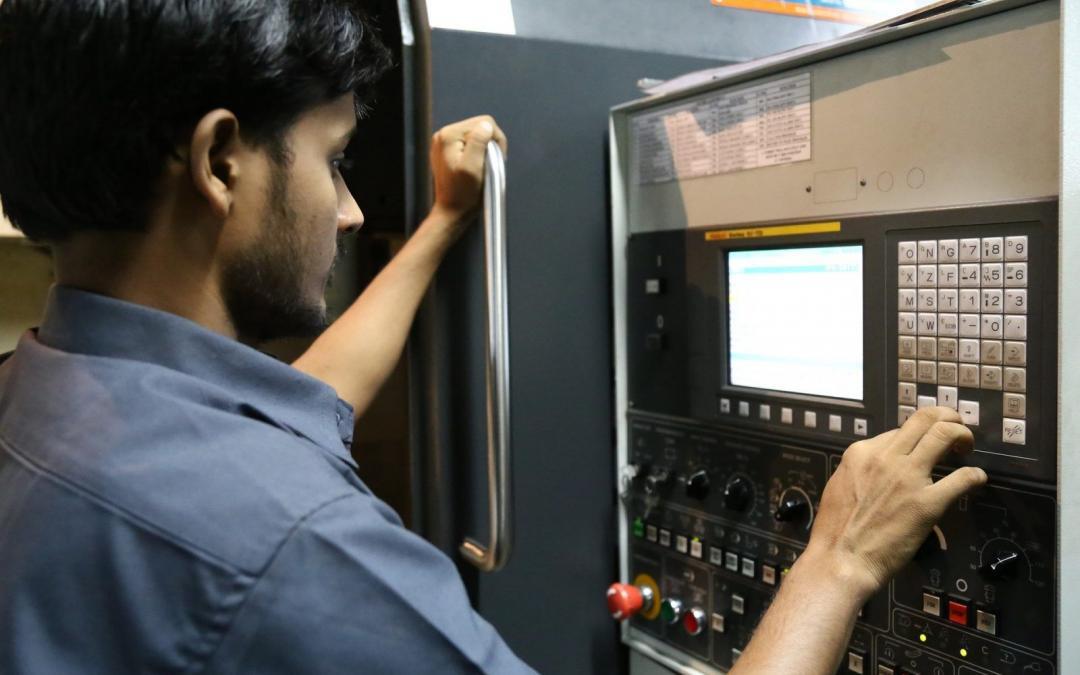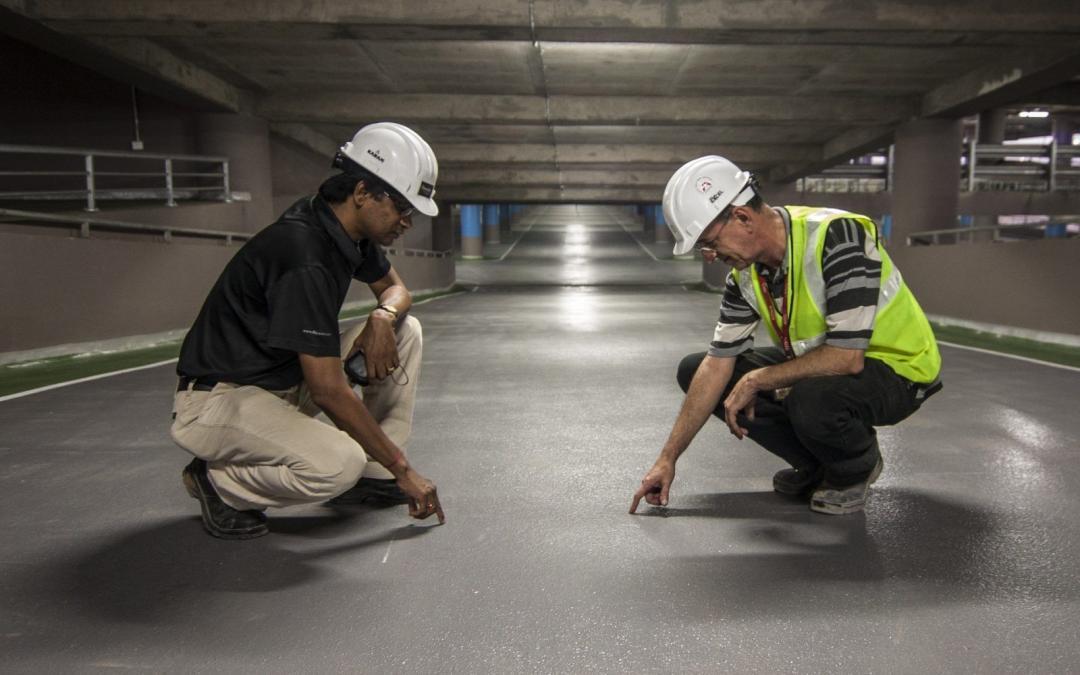
by Josh Seaman | Jul 20, 2024 | Defence, Veterans
In Australia, veterans possess a wealth of skills and experience that can greatly benefit civilian workplaces. However, transitioning from military to civilian employment can be challenging for veterans due to differences in work culture and practices. Employers who are keen to harness the potential of veterans need to create an environment that is both inclusive and supportive. This article provides practical tips and strategies for employers to foster veteran-friendly workplaces.
Understanding the Veteran Experience
The first step in creating a veteran-friendly workplace is understanding the unique experiences and challenges veterans face. Many veterans have been through rigorous training and high-stress situations, which means they often possess strong leadership, problem-solving, and teamwork skills. However, they may also face issues such as adjusting to a less structured environment or dealing with the psychological impact of their service. Recognising and respecting these experiences is crucial.
Inclusive Recruitment Practices
To attract veteran talent, it’s important to adopt inclusive recruitment practices. This can include:
– Targeted Job Advertisements: Post job openings on platforms that veterans frequently visit, such as veteran support organisations and job boards dedicated to veterans.
– Skill Translation: Ensure job descriptions are written in a way that military skills and experiences are easily translated to civilian roles. Veterans may not be familiar with civilian job titles or jargon, so clarity is key.
– Supportive Application Process: Simplify the application process and offer assistance where needed. Consider holding information sessions or workshops to help veterans understand the application and interview process.
Creating a Supportive Work Environment
Once veterans are employed, maintaining a supportive environment is essential for their long-term success and well-being. Strategies include:
– Mentorship Programs: Pair veterans with experienced mentors who can help them navigate the new work culture and provide ongoing support.
– Flexible Working Arrangements: Offer flexible hours or remote work options to accommodate veterans who may need to attend medical appointments or counselling sessions.
– Recognition and Appreciation: Regularly acknowledge and appreciate the contributions of veteran employees. This can be through formal recognition programs or simple gestures of appreciation.
Training and Development
Investing in the continuous development of veteran employees is beneficial for both the individual and the organisation. Consider the following:
– Tailored Training Programs: Provide training that is specifically designed to bridge any skills gaps that veterans may have. This can include both technical training and soft skills development.
– Career Progression: Create clear pathways for career progression within the organisation. Veterans often have a strong desire to continue advancing and contributing meaningfully.
– Health and Wellbeing Programs: Implement health and wellbeing programs that address both physical and mental health. Providing access to counselling services, fitness programs, and stress management workshops can make a significant difference.
Fostering a Culture of Respect and Understanding
Building a culture that respects and understands the veteran experience is key to a veteran-friendly workplace. Encourage open communication and foster a sense of community among employees. Provide training to non-veteran staff on the value veterans bring to the workplace and how to support their colleagues effectively.
Conclusion
Creating a veteran-friendly work environment in Australia requires commitment and understanding from employers. By adopting inclusive recruitment practices, offering tailored support and training, and fostering a culture of respect, employers can not only help veterans transition successfully but also benefit from the unique skills and perspectives they bring. Embracing these strategies will contribute to a more inclusive and dynamic workplace for all.

by Josh Seaman | Jul 13, 2024 | Defence, Veterans
Transitioning from military service to civilian employment can be a challenging process for veterans. The skills and experiences gained during service are invaluable, but translating them into a civilian context requires careful planning and support. This guide provides Australian veterans with practical advice to navigate this transition successfully.
Understanding the Transition
The transition from military to civilian employment is not just about finding a new job; it’s about adapting to a different environment and culture. The structured nature of military life contrasts with the often more flexible and informal civilian workplace. Understanding these differences is the first step in making a successful transition.
Step 1: Self-Assessment
Begin by conducting a thorough self-assessment. Identify your skills, strengths, and experiences from your military service that are transferable to civilian jobs. Consider both technical skills and soft skills such as leadership, teamwork, and problem-solving. This self-awareness will help you articulate your value to potential employers.
Step 2: Translating Military Skills
One of the biggest challenges veterans face is translating military terminology into civilian job descriptions. Use resources like the Australian Defence Force Transition Support Service, which offers tools to help you convert your military experience into civilian terms. Tailoring your resume to highlight relevant skills in a language that civilian employers understand is crucial.
Step 3: Education and Training
Depending on your career goals, additional education or training may be necessary. Research vocational training programs, certifications, or degrees that align with your desired career path. Many Australian institutions offer support for veterans, including financial aid and tailored programs to help bridge any gaps in skills or qualifications.
Step 4: Networking
Networking is a powerful tool in the job search process. Attend job fairs, join professional organisations, and connect with other veterans who have successfully transitioned to civilian roles. Online platforms like LinkedIn can also be valuable for building your network and learning about job opportunities.
Step 5: Utilising Support Services
Take advantage of the various support services available to Australian veterans. Organisations such as Soldier On, RSL Employment Program, and the Department of Veterans’ Affairs offer career counselling, job placement services, and other resources to assist in your transition. These services can provide personalised guidance and support tailored to your unique needs.
Step 6: Preparing for Interviews
Interviewing for a civilian job can be different from military promotion boards. Practice common interview questions and scenarios, and consider seeking feedback from career counsellors or mentors. Highlight your military achievements in a way that demonstrates their relevance to the civilian role you’re applying for.
Step 7: Adapting to Civilian Work Culture
Once you secure a job, adapting to the civilian work culture is essential. Be prepared for differences in communication styles, workplace hierarchies, and performance expectations. Approach this transition with an open mind and a willingness to learn. Your adaptability, honed through military service, will be a significant asset.
Step 8: Seeking Ongoing Support
Even after securing employment, seeking ongoing support can be beneficial. Join veteran support groups and stay connected with organisations that offer career development resources. Continuous learning and professional growth are vital components of a successful career transition.
Conclusion
The transition from military to civilian employment is a significant life change, but with the right approach and resources, it can lead to a rewarding and fulfilling career. By understanding the process, leveraging available support, and applying your unique skills, you can navigate this transition effectively. Remember, your military service has equipped you with valuable experiences that can greatly benefit civilian employers.

by Josh Seaman | Jun 24, 2022 | Defence, Employment Agencies, Recruitment Agencies, Veterans
How can veterans transition from military to civilian life comfortably? Some were trained for years to be in combat, and the sudden change can leave them with a sense of purposelessness.
The transition from military to civilian life can be daunting for some. Understanding job titles and responsibilities and whether your expertise and experiences qualify you for a given position can be challenging to decipher. Interviewing and onboarding may be new steps for those coming from a structured environment like the military. But remember that as a veteran, you bring unique perspectives to the workplace, which must be marketed effectively.
Below are some tips for veterans’ job search:
Start Your Job Hunt Early
As soon as a veteran leaves the military, they begin looking for a new job 60-90 days before their contract end. This may sound like much time. However, you should begin the search process even sooner to find the best match possible. As soon as you know when you’ll be leaving your current position, start searching for a new one!
Build relationships and connections to potential employers and open positions by contacting people in your network. You’ll want to know what you like and dislike about different companies’ work environments and cultures. A simple conversation could lead to your next career move, and you never know what you’ll learn from it! Much work goes into preparing for a job interview, but it will pay off in the long run.
Network and Connections
Veteran job seekers will find a wealth of information on LinkedIn. It’s a great way to see what companies highlight in their social media posts and what their employees say about their work. These platforms are a great place to meet other veterans and learn from their experiences. You can learn a lot from them about making a smooth transition into a new position at their company.
Career fairs are also a great way to meet recruiters face-to-face and get your name out there. They are still taking place online and are an excellent opportunity to meet new people and share ideas. Make sure you concentrate on companies that share your experiences and interests by researching.
Research
Try to ask yourself the following questions to figure out what you are really looking for in a job and company. Here are some questions to ask yourself:
- To be successful, what are the most critical elements?
- Do you want to work closely with your manager and colleagues, or would you prefer to be more autonomous to meet your goals?
- How important do you consider it to have a solid corporate culture?
- Where can you put your strengths and interests to the test in a job that allows you to grow and learn?
Knowing which opportunities are indeed a good match for your background and goals is something you’ll learn from your research. Employer support for veterans is an important consideration for those who served in the military and are looking for a new job. It would help if you also research the salary and prepare yourself some relevant questions for your future employers if you are given the opportunity to be interviewed. Remember only to ask appropriate and intelligent questions during an interview. Asking unnecessary questions might lead you to fail the job interview.
Prepare your Resume
Your resume is the first thing a hiring manager or recruiting team sees of you, so it’s imperative that it’s polished! Ask a non-military friend, colleague, or connection to look over your resume and provide feedback and suggestions to ensure that your skills and experience are applicable to a wide range of positions. You don’t want to try to fit all of your military-related experience into two pages. If you want to land a specific job, you should tailor your resumes to highlight your strengths in a particular set of skills.
You may be overwhelmed by all of this information, and you may be hesitant to make such a significant career change. You don’t have to take on everything at once. You’ll be able to breeze through the job search and interview processes if you plan ahead. Concentrate your efforts and demonstrate why you’d be a valuable addition to their team to potential employers and recruiters. This advice will help you land your upcoming superb job and begin a new career.

by Josh Seaman | Feb 4, 2022 | Employment Agencies, Recruitment Agencies, Veterans
A growing number of veterans and their families are looking to recruitment agencies in Australia to help them find work after serving in the military for several years. With Australian-based veterans employment agencies’ support, it is possible for returning veterans to quickly and easily find the right career opportunities to suit their needs. These agencies aid those who have served in the armed forces and be successful in their search for civilian employment.
Veterans have been tested through the most challenging conditions possible, like combat situations and the rigours of boot camp, making them stronger and more prepared for the challenges of life. These challenges are necessary for success in any career.
Veterans: Military Experience
Employers should prioritize candidates with military experience in their recruiting process. Although some veterans do not have previous work experience as civilians, military training and experience provide many of the skills employers look for in the civilian job market. Those skills include teamwork, working with a large number of people in a fast-paced environment, time management, good communication skills, the ability to function under extreme pressure in various situations, and the ability to resolve problems with minimal supervision. These are good traits to bring to an organization.
Employers should be willing to help veterans and ex-military members develop the skills they need to succeed in their jobs. After all, veterans already have great attitudes towards working in a company. They are dedicated, motivated and disciplined. But they may lack some of the skills needed to be a successful employee, such as basic IT proficiency. This is where employers can step in to help their employees succeed. Employers can offer training opportunities and give feedback on how to improve performance.
It is ideal for veterans to make sure that their resume is geared toward work experience in the civilian world. With the help of recruitment agencies, veterans will receive the support they need to ensure that they are fully equipped once they transition to a new job.
Veterans: The Help they Need
Australia has a proud history of helping veterans back into civilian life. Beyond providing work to veterans, it also gives us a chance to acknowledge and thank the brave men and women who protect us each day.
Several employment agencies assist veterans in finding jobs. The prime objective of these recruitment agencies is to help returning veterans find suitable employment in a variety of occupations that match their skills and experience gained in the military.
These agencies can help you with veterans resumes and job interview skills. Also, they may be able to provide valuable advice on how to make the transition from military to civilian life as smooth as possible. If you consider hiring a veteran in your company, now is the time to find out what else they have to offer. We have a comprehensive list of the best veterans in Sydney, Australia, and we can definitely find you the best match. On the other hand, if you are a veteran returning to civilian life and seeking a new career, make sure you get in touch with us.

by Josh Seaman | Sep 30, 2021 | Defence, Employment Agencies, Recruitment Agencies, Veterans
The answer to the question of the day is a resounding, “Why veterans make more reliable employees.” Let’s start with the Navy because it’s so obvious. The Navy is a professional working environment. They are always on the lookout for new talent and trying to keep them. This has always been true and you can’t prove any of this by looking at the percentage of personnel that end up going back to the military and or defence industry after being in a civilian work setting, this is commonly known as a re-tread.
Navy Veterans are Hard Working
In addition, the people in the navy are extremely hardworking. You have to give them the benefit of the doubt to believe that they will ever be satisfied working in a less than stellar working environment. I don’t know about you, but I have never met anyone in my life that believes that someone will come into their workplace and be happy doing any kind of grunt work like cleaning the office or cleaning out the attics. Most people would go to the fullest extent possible to avoid doing such menial jobs. To summarise, Navy personal are very accustomed to less than desirable working conditions.
Air Force Veterans are Competent, and the most similar to civilian land
Now let’s take a look at the Air Force. The Air Force has its own culture and their ranking is based on how much they are liked as well as competency. When an air force person comes into the civilian work place, they are expected to work under someone who they like and someone who is competent. People who have worked in the air force often become loyal to their co-workers and have a lot of career options post their serving career.
Army Veterans are Professional
The third option is the army. I’ve always found the working environment of an army to be very professional. The physical makeup of the army is much different than civilian working environments. In addition, their ranks and postings are constantly changing so you never know who you are working under, and they really encompass the adapt and overcome mentality. “work the solution”.
Veterans are Flexible
What you must understand is that each army unit has a different structure. The physical makeup of each brigade or base will vary, so you need to get to know your fellow co-workers before you work with them. The working environment can be really challenging for those of us who have not served in the military. However, if you are willing to put the work in, it can be very rewarding.
Veterans are Multi-Faceted
The conclusion I draw from all of this is that the answer to the question of “why veterans make more reliable employees” is a multi-faceted approach involving co-workers and supervisors. You must develop good relationships with the ones you interact with on a daily basis. In addition, you need to be able to show the rest of the workplace that you are open and friendly. It takes a bit of time to develop these skills but it is well worth the effort. Just think of the benefits you will reap from knowing why veterans make more reliable employees.

by Josh Seaman | Sep 29, 2021 | Defence, Employment Agencies, Recruitment Agencies, Veterans
Why don’t more companies hire vets, because they possess the work ethic and other characteristics that are required in today’s business world? The fact of the matter is that there are many outstanding veterans who were never interested in applying for a job because they lacked the qualifications or the personality to get ahead climbing the corporate ladder. As a former service member, I can tell you from personal experience that the skills and work ethic you need as an employer are there in abundance with most veterans.
Give Veterans Priority
Why employers should give veterans top priority when looking to fill open positions
In today’s economy, jobs are not always readily available, and most people have at least some level of education that they need to advance in the career ladder. The lack of qualified job-seekers has created a huge demand for trained veterans in all different areas of the work-force. Due to the lack of available jobs veterans are forced to transition into the workforce from one stage of their career to the next in order to support themselves and their families.
Military Experience is Useful
Military experience is one of the primary benefits that employers should look for when screening job-seekers. However, the problem is that most of us have either never been in the military or haven’t had any type of military experience. There are many individuals who come into the workplace with a number of different types of personal problems that prevent them from progressing to a higher level in their position. Very few individuals have served in the military and gained the necessary skills that are required of them for success within the workplace. This is why employers should hire veterans and give them top priority when it comes to recruiting workers with military experience.
Remove Obstacle for Veterans
Why do so many veterans face personal obstacles in the job search? The reality is that there are many veterans who were either discharged or injured due to the actions of their fellow countrymen. Those who were unable to continue their education in the military or those who left the armed forces before completing their terms find that they face numerous obstacles on the job search. These include a lack of relevant work experience, a lack of relevant skills and an unsupportive supervisors.
Make Reasonable Allowances for Veterans
A number of veterans face a number of issues that are unique to them individually. Many veterans face issues such as poor communication skills, lack of job skills and an unsupportive supervisor. Because of these individual challenges many unemployed veterans face a difficult task finding gainful employment. This is why employers need to hire veterans as a major domestic and foreign direct resource. One major benefit of this hiring strategy is that employers receive an immediate, qualified and highly skilled resource on the job market.
Military Skills are Valuable in Civilian Life
Veterans can also translate military experience to civilian life in numerous ways. When individuals leave the service, they may face a variety of employment and life challenges. Often these challenges cannot be translated to civilian life effectively. Individuals who return from military service with a variety of injuries will face unique employment and life challenges. Often these challenges cannot be effectively translated to civilian life.







Recent Comments